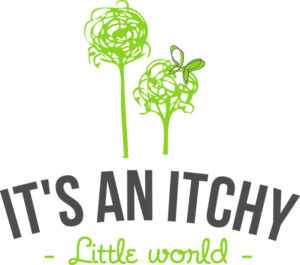Eat, Scratch, Repeat? The Food Allergy and Eczema Connection
By Louise Goldberg RD, CSP, CNSC
Eczema can be challenging for kids to deal with and even more challenging for their parents. My patients tell me having eczema affects all aspects of their life, from difficulty concentrating in school (because of feeling so itchy) to a rough night’s sleep. Moms and dads become super sleuths when their little one has a flare up: Was it the cold weather? Was it the new laundry detergent? Did Aunt Pearl have perfumed lotion on her hands when she pinched his cheeks?
Considering that a food might be triggering the flare up may be only one of several possibilities or it may not be considered at all; however, when other environmental factors have been ruled out, it’s time to put your child’s diet in the spotlight. A study investigating the link between foods and eczema revealed that 1 in 3 children who have moderate to severe eczema also have a food allergy. In fact, chronic eczema is sometimes the first indication for parents that their child has a very active immune system and allergy testing (including foods!) should be pursued.
Testing
There are a couple ways to test kids for food allergies.
A skin prick test, where a small amount of purified extract from a specific food is placed on the child’s skin. The skin is then lightly scratched or pricked to make elicit an immune response. This method is out of the question for a child with eczema. The test will most likely be inaccurate, difficult to determine results and can further irritate the skin.
A RAST (Radioallergosorbent test) is done using a sample of blood taken from the patient and tested outside the body for antibodies to specific foods. It is the most reliable testing at this time; however still has faults. You can get false positives, false negatives and it doesn’t account for other responses.
An elimination diet can pick up on a wide variety of issues in the diet and it is not age-restricted. If parents suspect one or two foods are responsible for eczema flare ups, they can do a trial elimination of those from the diet to see if it gives their child some relief. If they aren’t quite sure where to start, an allergist or a dietitian can give them some guidance, as well as direct them to alternatives that will provide their child with good nutrition so their growth isn’t compromised.
Common Foods That Trigger Eczema Flare Ups
While any food protein has the potential to cause an immune response, the allergens most commonly associated with eczema symptoms are: eggs, milk, peanuts, soy and wheat. I’ve found that some of my patients have even had flare-ups associated with tomatoes and green peas so make sure to bring up any additional food concerns you have with your allergist and dietitian.
Asking you to adjust or restrict your child’s diet to search for a food allergy may sound like a daunting task. And even though omitting that food may not cause your child’s eczema to completely go away, if it means one less itch, one less scratch and a good night’s sleep, it will be a relief to both of you.
If you have more detailed questions, feel free to contact me at Louise@AnAppleADayNutrition.com. 
Bio: Louise Goldberg RD, CSP, CNSC is a Registered Dietitian who is board certified as a pediatric nutrition specialist and a certified food allergy specialist. Catch more nutrition tips and info from her on Facebook at An Apple A Day Nutrition Consulting or on Twitter at @AnAppleADayRD.
FROM: Allergies, Contributors, Eczema, Food Allergies

I found this article that you might be interested in seeing: “Probiotic supplements for pregnant women ‘cuts allergy risk’. https://www.walesonline.co.uk/news/wales-news/2012/05/20/probiotic-supplements-for-pregnant-women-cuts-allergy-risk-91466-31008829/
My son is on a gluten free diet. He has chronic eczema and is prone to infections. Once we went gluten free his infections cleared up and his itching decreased dramatically. However, his eczema did not disappear. It is such a complicated puzzle to solve….possibly unsolvable. I am worried about what is going to happen in the hot humid weather. Diet might only help so much. But it has definitely been worth it! Less itchy is a better way to live.
Hi Cristina – you are absolutely right that diet doesn’t always solve everything in regard to eczema and other chronic health conditions. Although many times it can help tremendously. Have you considered eliminating soy and dairy to see if that helps as well? They are big eczema triggers as well. Other things to consider, if you haven’t already, are moving to soap nuts or a laundry ball like Smart Kleen – much more gentle than even the eco detergents. What soaps and cleansers do you use in the bath and to clean with? Also, is it possible he’s reacting to dust mites, mold, etc. in the home? This is a very common trigger. And do you notice seasonal differences in his skin? My son’s skin flares up worst each spring, so we’re sure he has multiple seasonal allergies and now know to watch him more carefully that time of year. Heat is a big trigger, doesn’t bother my son as much, but my daughter’s very mild eczema only occurs in the summer when it’s hot – right behind her sweaty little knees. Heat in the summer is one of the hardest things to control. Thank you so much for stopping by! I hope you’ll find the information on this blog helpful. Jennifer
Carbs, including fruit and starchy vegetables, are the only things that trigger my eczema. Not sure what’s going in with that, but it clears up substantially if I stay away from anything sweet.